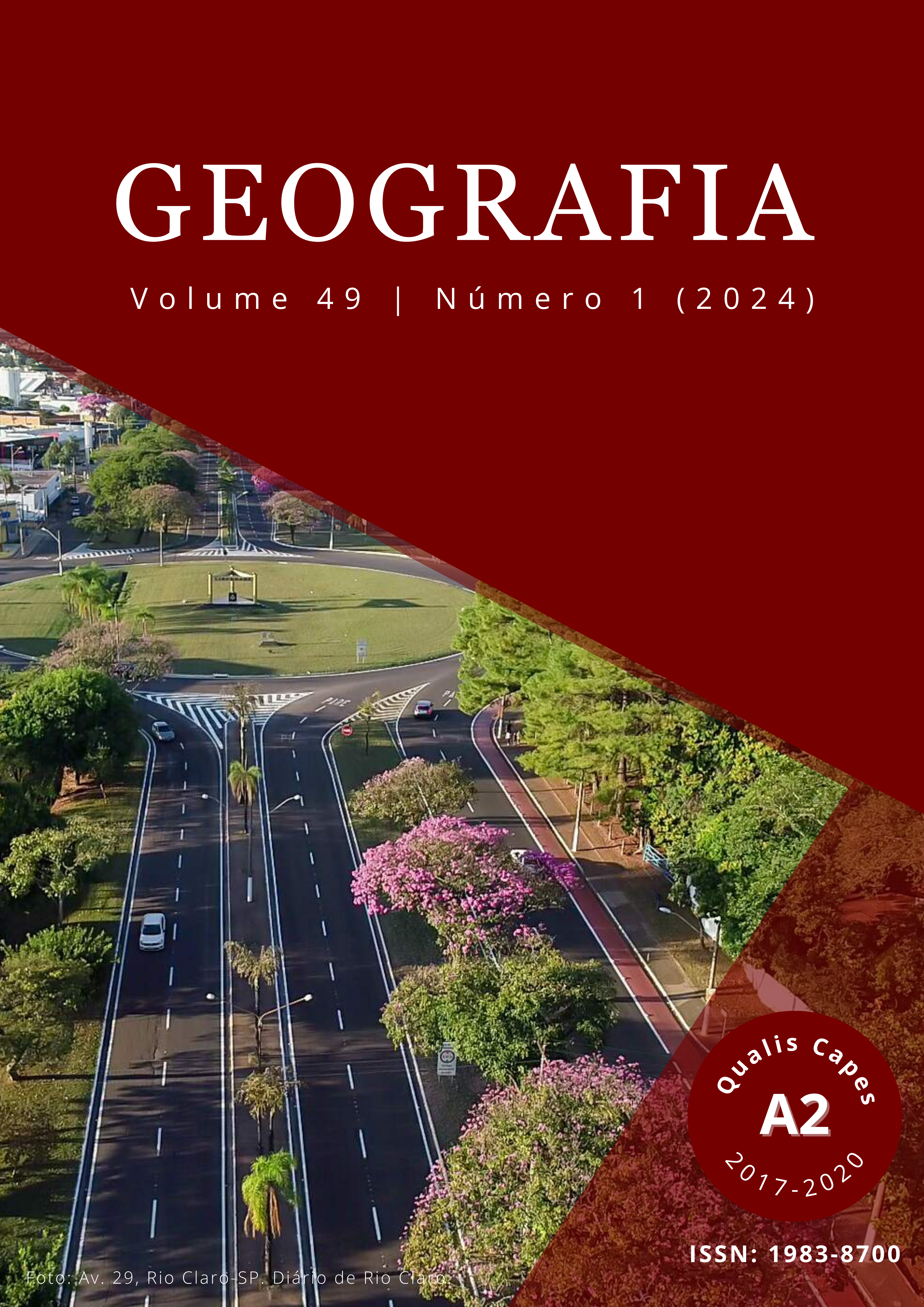Psychosphere of environmental sustainability: the sugarenergy sector and the national biofuels policy (RenovaBio)
DOI:
https://doi.org/10.5016/geografia.v49i1.18006Abstract
In the context of the affirmation of neoextractivism as a political-economic and ideological orientation for Latin American countries in the 21st century, the association between agribusiness and sustainability has been established in Brazilian territory. This association was established through the construction of a psychosphere that sought to legitimize actions to sustain certain sectors, positioning itself as a market solution for greenhouse gas emissions. As an empirical example of this articulation, the article analyzes the construction of the National Biofuels Policy (RenovaBio) and its contradictory relationship between the environmental psychosphere it advocates and the practices of one of the main sectors of Brazilian agribusiness, the sugarcane energy sector. The research is based, methodologically, on a literature review and secondary data collection. It was concluded that all this search for legitimacy based on sustainability, through RenovaBio, encounters serious social and environmental limits when considering the use of the territory carried out by the referred sector.
Downloads
Published
Issue
Section
License
Copyright (c) 2024 GEOGRAFIA

This work is licensed under a Creative Commons Attribution 4.0 International License.
The authors maintain the copyright and grant GEOGRAFIA the right of first publication, with the articles simultaneously licensed under the Creative Commons BY 4.0 License, which allows sharing and adapting the articles for any purpose, as long as appropriate credits and provisions of image rights, privacy or moral rights. Other legal attributions can be accessed at: https://creativecommons.org/licenses/by/4.0/legalcode.en.
Geography, Rio Claro, SP, Brazil - eISSN 1983-8700 is licensed under the Creative Commons BY 4.0 License.





